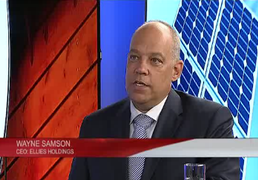THE retirement system would be vulnerable to "massive leakage" if provident fund members were able to benefit from the tax deduction of their contributions, while at the same time being exempt from the compulsory annuitisation of part of their savings on retirement, the Treasury said on Thursday.
Currently, provident fund members can take the first R500,000 of their cash lump sum payouts tax-free on retirement.
The provision for the compulsory annuitisation of two-thirds of provident fund savings has been postponed for two years to allow for further consultation with the Congress of South African Trade Unions (Cosatu), which vehemently opposes the measure.
However, during these two years, provident fund members will benefit for the first time from the 27.5% tax deduction of their provident fund contributions, which will result in an increase in their take-home pay. The annuitisation and tax-deduction measures were meant to go hand in hand.
The Treasury decided to keep the tax deduction because employers had already changed their information technology systems in preparation for it.
Treasury deputy director-general Ismail Momoniat stressed in a briefing to Parliament’s two finance committees that the tax-deduction provision would have to be withdrawn in two years if no agreement were reached with trade unions on annuitisation. He was speaking on the Revenue Laws Amendment Bill, which will delay implementation of the annuitisation clause of the Taxation Laws Amendment Act.
"If the tax deduction continues with no annuitisation for provident funds, it will place the whole retirement framework at risk. Pension funds and retirement annuities will be undermined," Mr Momoniat said. It would open up the system to "massive leakage" from pension funds to provident funds.
Pension fund contributions are currently tax-deductible but, at the same time, the two-thirds annuitisation rule applies. Without annuitisation, provident fund members would benefit unfairly both from the tax deduction of contributions, and the tax-free status of cash lump sums. Mr Momoniat said if provident funds were to have the tax-deduction benefit without the annuitisation, there would be no benefit for pension fund members and retirement annuity policyholders to remain with their retirement options. "Who would want to remain in pension funds or retirement annuities if they can get the tax deduction at a provident fund without annuitisation?" he asked.
Such an unequal dispensation would lead to the creation of new provident funds to replace pension funds.
The Association of Savings and Investment SA’s senior policy adviser, Rosemary Lightbody, stressed that the ultimate harmonisation of the tax treatment of provident and pension funds was critically important.
Mr Momoniat acknowledged that removing the tax deduction in two years if no agreement were reached on annuitisation would be "contentious and may face as much opposition as annuitisation". There were a number of urgent reforms pending that would improve the retirement regime, he said.

Picture: THINKSTOCK
THE retirement system would be vulnerable to "massive leakage" if provident fund members were able to benefit from the tax deduction of their contributions, while at the same time being exempt from the compulsory annuitisation of part of their savings on retirement, the Treasury said on Thursday.
Currently, provident fund members can take the first R500,000 of their cash lump sum payouts tax-free on retirement.
The provision for the compulsory annuitisation of two-thirds of provident fund savings has been postponed for two years to allow for further consultation with the Congress of South African Trade Unions (Cosatu), which vehemently opposes the measure.
However, during these two years, provident fund members will benefit for the first time from the 27.5% tax deduction of their provident fund contributions, which will result in an increase in their take-home pay. The annuitisation and tax-deduction measures were meant to go hand in hand.
The Treasury decided to keep the tax deduction because employers had already changed their information technology systems in preparation for it.
Treasury deputy director-general Ismail Momoniat stressed in a briefing to Parliament’s two finance committees that the tax-deduction provision would have to be withdrawn in two years if no agreement were reached with trade unions on annuitisation. He was speaking on the Revenue Laws Amendment Bill, which will delay implementation of the annuitisation clause of the Taxation Laws Amendment Act.
"If the tax deduction continues with no annuitisation for provident funds, it will place the whole retirement framework at risk. Pension funds and retirement annuities will be undermined," Mr Momoniat said. It would open up the system to "massive leakage" from pension funds to provident funds.
Pension fund contributions are currently tax-deductible but, at the same time, the two-thirds annuitisation rule applies. Without annuitisation, provident fund members would benefit unfairly both from the tax deduction of contributions, and the tax-free status of cash lump sums. Mr Momoniat said if provident funds were to have the tax-deduction benefit without the annuitisation, there would be no benefit for pension fund members and retirement annuity policyholders to remain with their retirement options. "Who would want to remain in pension funds or retirement annuities if they can get the tax deduction at a provident fund without annuitisation?" he asked.
Such an unequal dispensation would lead to the creation of new provident funds to replace pension funds.
The Association of Savings and Investment SA’s senior policy adviser, Rosemary Lightbody, stressed that the ultimate harmonisation of the tax treatment of provident and pension funds was critically important.
Mr Momoniat acknowledged that removing the tax deduction in two years if no agreement were reached on annuitisation would be "contentious and may face as much opposition as annuitisation". There were a number of urgent reforms pending that would improve the retirement regime, he said.


























Change: 0.83%
Change: 0.93%
Change: 0.95%
Change: 0.73%
Change: 1.91%
Data supplied by Profile Data
Change: 0.58%
Change: 0.51%
Change: 0.83%
Change: 0.00%
Change: 0.63%
Data supplied by Profile Data
Change: -1.62%
Change: -1.08%
Change: -0.79%
Change: -1.28%
Change: -0.59%
Data supplied by Profile Data
Change: 2.32%
Change: 2.09%
Change: 2.36%
Change: 2.82%
Change: 3.44%
Data supplied by Profile Data